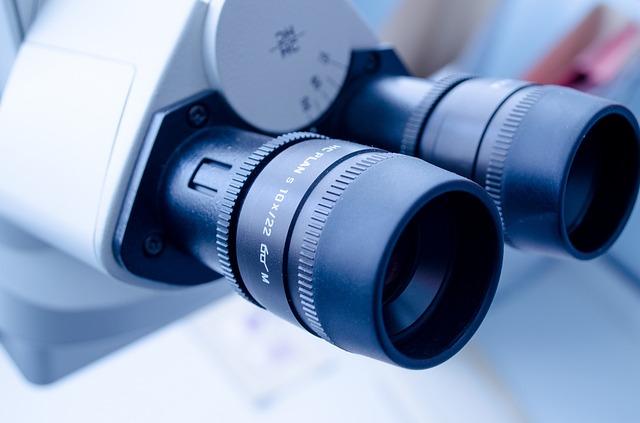Stem Cell Therapy in Massachusetts: A Comprehensive Guide for MA Residents
What is Stem Cell Therapy?
Stem cell therapy is at the heart of a new era of medicine, offering a less invasive solution for many conditions. Stem cells are the body’s raw materials from which all other cells with specialized functions are generated.
Under the right conditions in the body or a laboratory, stem cells divide to form more cells, known as daughter cells. These daughter cells either become new stem cells or specialized cells with a more specific function like brain cells, blood cells, or bone cells, with no other cell having the ability to generate such diverse cell types.
The essence of stem cell therapy is to introduce these cells into damaged areas, prompting the body’s natural healing mechanism to kickstart. It’s like having a repair team within, ready to fix the damages and restore functionality whenever called upon.

Unveiling the Scope of Regenerative Medicine
Regenerative medicine is an umbrella term that encompasses stem cell therapy, tissue engineering, and other techniques aimed at repairing and replacing damaged cells, tissues, or organs.
The goal is to restore the impaired functions caused by various factors such as age, diseases, and injuries. It’s akin to having a renovation team for an old, dilapidated house, bringing it back to its former glory or even better.
The use of stem cells in regenerative medicine has opened new doors in treating conditions that were once thought incurable, propelling medicine into a realm filled with endless possibilities.
The Current Landscape of Stem Cell Research in Massachusetts
Massachusetts is a fertile ground for stem cell research, housing renowned institutions like the Harvard Stem Cell Institute and Massachusetts General Hospital.
These institutions are diligently working towards unveiling the mysteries surrounding stem cells, and how they can be harnessed to treat a plethora of conditions.
The Boston area, particularly, is a nexus of this groundbreaking research, bridging the gap between theoretical knowledge and practical, life-altering applications.
How Are Stem Cells Harvested and What Types Are Used in Therapy?
Harvesting stem cells responsibly and ethically is a cornerstone of advancing stem cell therapy.
Stem cells can be harvested from various sources including bone marrow, adipose tissue, peripheral blood, and embryos. The process of harvesting is a meticulous one, often performed in a clinical setting to ensure purity and viability of the cells.
Bone marrow, for instance, is a rich source of mesenchymal stem cells which are heralded for their ability to differentiate into various cell types including bone, cartilage, and fat cells.
The procedure involves inserting a needle into the bone (often the hip bone) to extract the marrow. Though it sounds daunting, under expert hands, it’s a straightforward procedure with minimal discomfort to the patient.
On the other hand, embryonic stem cells are harvested from embryos. They are known for their pluripotent nature, meaning they can turn into more than 220 cell types in the human body.
However, the use of embryonic stem cells has sparked ethical debates due to the destruction of embryos involved, nudging researchers to explore other sources and types of stem cells.
Types of Stem Cells Used in Therapy:
Embryonic Stem Cells (ESCs): As mentioned, ESCs have the capability to differentiate into any cell type, making them a potent option in regenerative medicine.
Adult or Somatic Stem Cells: These cells are found in small quantities in tissues such as bone marrow and fat. They are multipotent, meaning they can turn into different cell types, though to a lesser extent compared to ESCs.
Induced Pluripotent Stem Cells (iPSCs): These are adult cells that have been genetically reprogrammed to an embryonic stem cell-like state, providing a promising and ethically sound alternative to embryonic stem cells.
Mesenchymal Stem Cells (MSCs): Harvested primarily from bone marrow or fat tissue, MSCs are praised for their ability to support tissue repair and are predominantly used in orthopedic treatments.
Amniotic Stem Cells: Derived from the amniotic fluid and tissue, these cells have been shown to possess regenerative properties without the ethical concerns associated with embryonic stem cells.
The use of stem cells in therapy isn’t a one-size-fits-all; it’s a tailored approach, with the type of stem cell used being contingent on the condition being treated and the most current, evidence-based practices.
The science of stem cell therapy is evolving, with each day bringing forth new understanding and potential applications. The rich tapestry of stem cell types and sources is what makes this field of medicine both promising and complex, holding the potential to significantly impact the future of healthcare, not just in Massachusetts, but globally.
Massachusetts, being a vanguard in stem cell research and treatment, offers a glimpse into the exciting possibilities that stem cell therapy holds.
Whether you are a patient seeking relief from joint pain or a medical professional looking to broaden your understanding of regenerative medicine, the knowledge of how stem cells are harvested and the types used in therapy is crucial. Through the prism of stem cell therapy, the future of medicine gleams with hope and endless possibilities.

Orthopedic Applications of Stem Cell Treatment
In the realm of orthopedics, the promise of stem cell treatment is akin to a new dawn, shedding light on potentially revolutionary solutions for conditions that plague our musculoskeletal system.
The beauty of stem cell therapy lies in its ability to harness the body’s natural healing mechanisms, providing a biological boost to the repair and regeneration of tissues like tendons, ligaments, and bones.
Stem cell therapy is increasingly becoming a beacon of hope for individuals suffering from chronic joint pain, arthritis, sports injuries, and other degenerative orthopedic conditions.
Imagine having a toolbox within, equipped with all the necessary tools to fix a broken shelf or a leaky faucet. Stem cells act like this toolbox for our bodies, especially when dealing with orthopedic issues.
The procedure typically involves extracting stem cells from a viable source like bone marrow or adipose tissue, and then injecting these cells into the injured area. This injection, often guided by ultrasound or X-ray, ensures the cells are delivered precisely where they are needed most.
One of the most common orthopedic applications is in treating osteoarthritis, a degenerative condition that wears down joint cartilage.
Stem cells have the potential to slow down the progression of osteoarthritis, alleviate pain, and improve joint function. It’s like having a team of microscopic construction workers filling in the potholes on a rough road, making the journey smoother for the travelers.
Moreover, stem cell injections are also being explored in the treatment of tendinitis, ligament tears, and other conditions that traditionally required surgical intervention.
The minimization of invasive procedures reduces the risks of surgical complications and post-surgical pain, making stem cell therapy a compelling option for both patients and healthcare providers.
The Boston area, with its rich medical research environment including the esteemed Harvard Stem Cell Institute and Boston Children’s Hospital, is at the forefront of investigating and applying stem cell therapies in orthopedics.
The Massachusetts General Hospital also offers a glimpse into how stem cell treatments are being integrated into orthopedic care, fostering hope for countless individuals.
The fusion of stem cell research and orthopedic medicine is not merely a fleeting affair but a burgeoning relationship destined to redefine the contours of orthopedic treatment.
As the evidence supporting the efficacy and safety of stem cell treatments in orthopedics continues to mount, the residents of Massachusetts find themselves in a prime location to benefit from these medical advancements.
Through the lens of stem cell therapy, the future of orthopedic medicine is not just a narrative of hope but a reality unfolding with each passing day.
Risks and Complications: What Should You Know?
Embarking on the path of stem cell therapy is akin to stepping into a new realm of medical possibilities. However, as with any medical procedure, it’s crucial to be cognizant of the potential risks and complications that may arise. An informed decision is your best armor in navigating the therapeutic course.
The most common risks associated with stem cell therapy primarily pertain to the procedure of cell harvesting and injection.
These may include infection, bleeding, and nerve damage, akin to the risks associated with other types of injections and minor surgical procedures.
The needle’s journey to the harvest or injection site, although guided with precision, might encounter unexpected hurdles, much like a sailor navigating through stormy seas.
Moreover, there’s a risk of an adverse reaction if stem cells are derived from sources other than the patient’s own body. The body’s defense mechanism might see these foreign cells as invaders, launching an immune response against them.
It’s akin to having a well-guarded fortress that scrutinizes every incoming entity, ensuring they pose no threat to the kingdom within.
Furthermore, when it comes to embryonic stem cell therapy, ethical concerns, and potential for tumorigenicity (tumor formation) are significant considerations.
The pluripotent nature of embryonic stem cells, while a boon for regenerative medicine, is also a bane as these cells might grow uncontrollably leading to tumor formation, much like a well-intentioned sorcerer’s spell going awry.
There’s also the grey area surrounding the regulatory framework and standardization of stem cell therapies. The field is relatively new, and regulatory bodies like the National Institutes of Health are still in the process of defining the guidelines and protocols to ensure the safety and efficacy of these treatments.
Regenerative medicine, while holding a promise, also demands a thorough understanding of its limitations and potential risks. It’s crucial to have a comprehensive discussion with healthcare providers, who are like your navigators in this uncharted territory, to understand the potential risks and complications associated with stem cell therapy.
In Massachusetts, with its well-spring of reputable medical institutions, residents have the advantage of accessing knowledgeable healthcare providers proficient in stem cell therapies.
Engaging in an informed discourse with these experts will not only shed light on the risks involved but also provide a clearer perspective on whether stem cell therapy is the right choice for your unique medical condition.
Your safety and well-being are the compass that guides the hands of medical practitioners. Ensuring you are well-versed with the risks, and establishing a transparent communication channel with your healthcare provider, will set a solid foundation for a successful therapeutic journey.
Are You A Good Candidate for Stem Cell Therapy?
Stepping into the terrain of stem cell therapy requires a thoughtful consideration of whether this path aligns with your medical needs and overall health landscape.
Being a good candidate for stem cell therapy is contingent on various factors, each playing a pivotal role in determining the potential success of the treatment. It’s akin to finding the right key that fits perfectly into a lock, opening doors to rejuvenated health.
One of the primary considerations is the nature and stage of the disease or condition you are aiming to treat. Stem cell therapy has shown promising results in treatments of various orthopedic conditions, degenerative diseases, and certain injuries.
However, the efficacy might wane in extremely advanced stages of a disease, much like a boat that’s easier to steer in calm waters than in a tempest.
Your overall health also plays a crucial role. Individuals with good general health, devoid of chronic infections or other serious medical conditions, may respond better to stem cell therapy.
It’s like having a fertile soil where seeds (stem cells) can sprout and flourish, driving the regenerative process effectively.
Furthermore, realistic expectations are a cornerstone of being a good candidate. Stem cell treatment is not a magic wand but a scientifically-backed approach that holds promise in alleviating symptoms and promoting tissue regeneration.
Understanding the potential outcomes and being open to a journey of recovery, which may take time and patience, is essential.
Your consultation with a healthcare provider is a critical step in determining your candidacy for stem cell therapy.
In Massachusetts, renowned institutions and a plethora of skilled practitioners provide a conducive environment for such evaluations.
They will assess your medical history, the current state of your health, and the specifics of your condition to provide a well-informed opinion on whether stem cell therapy is a viable option for you.
Moreover, they will elucidate the risks and complications, the process of the therapy, and what to expect post-treatment, ensuring you have a comprehensive understanding before embarking on the stem cell therapy journey.
Embarking on the road of regenerative medicine is a collaborative endeavor between you and your healthcare provider.
Being armed with the right information and having an open dialogue will pave the way for a well-informed decision, propelling you towards a potential horizon of improved health and well-being.
Through the lens of informed choice, the narrative of stem cell therapy unfolds with each individual, painting a broader picture of hope and healing in the realm of medicine.
Where Can You Get Stem Cell Treatment in Massachusetts?
Massachusetts, known as a crucible of medical innovation, offers a fertile ground for those seeking stem cell treatment. The state is home to a plethora of esteemed institutions and clinics specializing in regenerative medicine. It’s akin to having a treasure trove of medical expertise and facilities at your disposal, each holding a promise of unveiling the healing potential of stem cells.
One notable institution is the Harvard Stem Cell Institute, where cutting-edge research translates into advanced treatments. Then there’s the Massachusetts General Hospital, a bastion of medical excellence, where stem cell therapies are being harnessed to address a myriad of conditions.
Boston Children’s Hospital is another beacon of hope, especially for pediatric patients. Their focus on stem cell research and treatment offers a glimpse into how stem cell therapy can potentially alter the medical narrative for the younger population.
For those residing in the Boston area, the access to such high-caliber institutions is not just a matter of geographical proximity, but a gateway to a realm of medical advancements.
Furthermore, numerous specialized clinics across Massachusetts offer stem cell treatments, especially for orthopedic conditions. These clinics, helmed by board-certified physicians with a profound understanding of regenerative medicine, provide a spectrum of stem cell therapies tailored to individual patient needs.
Before venturing into any stem cell treatment, it’s imperative to ensure that the chosen facility adheres to the stringent regulatory and ethical guidelines governing stem cell therapy.
A thorough vetting of the clinic’s reputation, the expertise of the medical practitioners, and the transparency in explaining the potential benefits, risks, and the overall procedure is crucial.
The Future: Stem Cell and Regenerative Medicine
The fusion of stem cell and regenerative medicine is like a burgeoning symphony, each note resonating with the promise of healing and improved quality of life.
As research continues to unfold the mysteries surrounding stem cells, the horizon of regenerative medicine expands, bringing forth novel treatment modalities.
In Massachusetts, the confluence of intellectual prowess, state-of-the-art facilities, and a conducive regulatory environment fosters a fertile ground for advancing the frontier of stem cell research and treatment.
The ongoing research aims not only at refining the existing treatment protocols but also exploring new avenues where stem cells can be utilized.
It’s akin to venturing into uncharted waters, each ripple of discovery propelling the ship of regenerative medicine further into a sea of possibilities.
Moreover, the inter-disciplinary collaboration among researchers, clinicians, and policymakers is instrumental in shaping a future where stem cell therapy becomes a mainstream treatment option, accessible and effective.
The narrative of regenerative medicine is not merely a tale of scientific endeavor but a testament to the collective aspiration of alleviating human suffering and enhancing the quality of life.
As each day unfolds, the residents of Massachusetts find themselves at the epicenter of a medical revolution, where the promise of stem cell therapy is not a distant dream but a tangible reality.
Conclusion
The voyage through the intricacies of stem cell therapy in Massachusetts unveils a realm burgeoning with promise and potential. As we delve deeper into the heart of regenerative medicine, the unfolding narrative is one of hope, healing, and a steadfast quest for a better quality of life. Here are the key takeaways from this comprehensive guide:
Pioneering Treatment: Stem cell therapy stands as a pillar of innovative treatments, especially in the orthopedic domain, aiming to alleviate pain and restore functionality.
Research and Development: Institutions like the Harvard Stem Cell Institute and Massachusetts General Hospital are at the helm of groundbreaking research, propelling Massachusetts into the spotlight of stem cell advancements.
Tailored Therapies: The diverse types of stem cells and the tailored approach towards treating various conditions underscore the bespoke nature of stem cell therapy.
Safety and Efficacy: Being well-versed with the risks and ensuring the choice of reputable facilities and practitioners are crucial steps towards a safe and effective stem cell therapy journey.
Future Prospects: The ongoing research and interdisciplinary collaboration among experts in Massachusetts augur well for the future of stem cell therapy and regenerative medicine.
Information Access: Your quest for knowledge and the right treatment path is supported by a network of experts and institutions in Massachusetts, ready to guide you through the process.
Your journey through the domain of stem cell therapy doesn’t end here. It’s an ongoing narrative, each day weaving a tapestry of knowledge, experiences, and advancements.
The road to healing, bolstered by the promise of stem cells, beckons with a horizon filled with hope and a better quality of life. Your first step into this realm could be a leap towards a healthier, pain-free future.
Massachusetts Stem Cell Therapy Providers
Here you can find the best stem cell therapy providers in the state of Massachusetts. Fill out the form and a provider will contact you as soon as possible.

